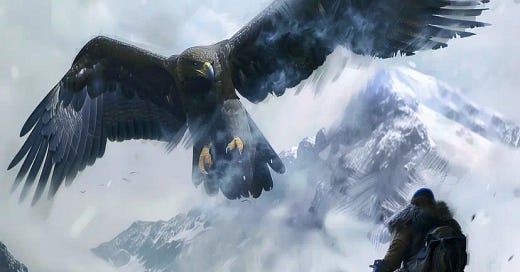Away to the north they fled, and there they found refuge among the Hrímheimr-Elves. Though they were seemingly welcomed with all the warmth one would a kinsman, the long division from the southern lands and the old scars from the time of Queen Hella had breed in these distant kindred of the Elves a great bitterness. They had little in the way of love fo…
© 2025 Brothers Krynn
Substack is the home for great culture



